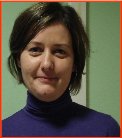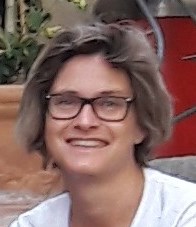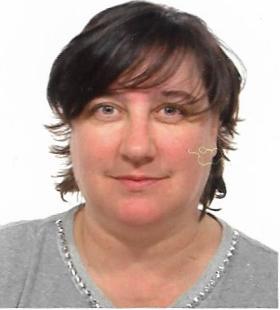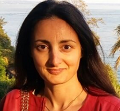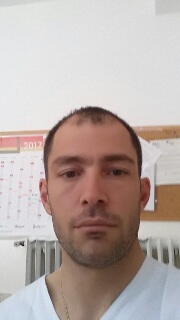Studying at the University of Verona
Here you can find information on the organisational aspects of the Programme, lecture timetables, learning activities and useful contact details for your time at the University, from enrolment to graduation.
Academic calendar
The academic calendar shows the deadlines and scheduled events that are relevant to students, teaching and technical-administrative staff of the University. Public holidays and University closures are also indicated. The academic year normally begins on 1 October each year and ends on 30 September of the following year.
Course calendar
The Academic Calendar sets out the degree programme lecture and exam timetables, as well as the relevant university closure dates..
| Period | From | To |
|---|---|---|
| FISIO VI 3^ anno - 1^semestre | Oct 1, 2020 | Nov 13, 2020 |
| FISIO VI 1^ anno - 1^semestre | Oct 12, 2020 | Dec 22, 2020 |
| FISIO VI 2^ anno - 1^semestre | Oct 12, 2020 | Dec 4, 2020 |
| FISIO VI 3^ anno - 2^semestre | Feb 8, 2021 | Mar 12, 2021 |
| FISIO VI 2^ anno - 2^semestre | Mar 1, 2021 | Apr 23, 2021 |
| FISIO VI 1^ anno - 2^semestre | Mar 15, 2021 | May 28, 2021 |
| Session | From | To |
|---|---|---|
| FISIO VI SESSIONE INVERNALE -2 ANNO | Dec 14, 2020 | Jan 22, 2021 |
| FISIO VI SESSIONE INVERNALE -3 ANNO | Jan 7, 2021 | Feb 5, 2021 |
| FISIO VI SESSIONE INVERNALE -1 ANNO | Jan 7, 2021 | Feb 5, 2021 |
| FISIO VI SESSIONE ESTIVA | Jul 5, 2021 | Jul 30, 2021 |
| FISIO VI SESSIONE AUTUNNALE | Sep 1, 2021 | Sep 30, 2021 |
| Session | From | To |
|---|---|---|
| FISIO VI SESSIONE AUTUNNALE | Nov 1, 2021 | Dec 22, 2021 |
| FISIO VI SESSIONE PRIMAVERILE | Mar 1, 2022 | Apr 30, 2022 |
| Period | From | To |
|---|---|---|
| FESTIVITA' IMMACOLATA CONCEZIONE | Dec 8, 2020 | Dec 8, 2020 |
| Vacanze Natalizie | Dec 24, 2020 | Jan 3, 2021 |
| VACANZE PASQUALI | Apr 2, 2021 | Apr 5, 2021 |
| Vacanze Estive | Aug 9, 2021 | Aug 15, 2021 |
| Santo Patrono Vicenza | Sep 8, 2021 | Sep 8, 2021 |
| Description | Period | From | To |
|---|---|---|---|
| FISIO VI 3^ anno - 1^semestre | FISIO VI 3^ anno - 1^semestre | Nov 16, 2020 | Dec 18, 2020 |
| FISIO VI 2^ anno - 1^semestre | FISIO VI 2^ anno - 1^semestre | Jan 25, 2021 | Feb 26, 2021 |
| FISIO VI 1^ anno - 1^semestre | FISIO VI 1^ anno - 1^semestre | Feb 8, 2021 | Mar 12, 2021 |
| FISIO VI 3^ anno - 2^semestre | FISIO VI 3^ anno - 2^semestre | Mar 15, 2021 | Jul 2, 2021 |
| FISIO VI 2^ anno - 2^semestre | FISIO VI 2^ anno - 2^semestre | Apr 26, 2021 | Jul 2, 2021 |
| FISIO VI 1^ anno - 2^semestre | FISIO VI 1^ anno - 2^semestre | May 31, 2021 | Jul 2, 2021 |
Exam calendar
Exam dates and rounds are managed by the relevant Medicine Teaching and Student Services Unit.
To view all the exam sessions available, please use the Exam dashboard on ESSE3.
If you forgot your login details or have problems logging in, please contact the relevant IT HelpDesk, or check the login details recovery web page.
Should you have any doubts or questions, please check the Enrollment FAQs
Academic staff
 michele.bertani@univr.it
michele.bertani@univr.it
 davideconte.bioeng@gmail.com
davideconte.bioeng@gmail.com
Cunico Laura
 laura.cunico@univr.it
laura.cunico@univr.it
 giada.goracci@univr.it
giada.goracci@univr.it
Pighi Michele
 michele.pighi@univr.it
michele.pighi@univr.it
 0458122320
0458122320
Study Plan
The Study Plan includes all modules, teaching and learning activities that each student will need to undertake during their time at the University.
Please select your Study Plan based on your enrollment year.
1° Year
| Modules | Credits | TAF | SSD |
|---|
2° Year activated in the A.Y. 2021/2022
| Modules | Credits | TAF | SSD |
|---|
3° Year activated in the A.Y. 2022/2023
| Modules | Credits | TAF | SSD |
|---|
| Modules | Credits | TAF | SSD |
|---|
| Modules | Credits | TAF | SSD |
|---|
| Modules | Credits | TAF | SSD |
|---|
Legend | Type of training activity (TTA)
TAF (Type of Educational Activity) All courses and activities are classified into different types of educational activities, indicated by a letter.
Propaedeutic physical and biological sciences - BIOLOGIA APPLICATA (2020/2021)
Teaching code
4S01837
Teacher
Credits
2
Language
Italian
Scientific Disciplinary Sector (SSD)
BIO/13 - EXPERIMENTAL BIOLOGY
Period
FISIO VI 1^ anno - 1^semestre dal Oct 12, 2020 al Dec 22, 2020.
To show the organization of the course that includes this module, follow this link: Course organization
Learning outcomes
The course aims at provide the basic knowledge of cell biology and human genetics, through the acquisition of the fundamental concepts of biology, functional and molecular principles of cellular processes common to all living organisms, mode of transmission of hereditary characters and molecular basis of genetic diseases, while developing the ability to use an appropriate scientific language. During the course, human biology aspects of particular biomedical and physiotherapist interest will be highlighted.
Upon successful completion, students will have acquired the necessary skills to understand and describe the basic mechanisms that regulate life, cell reproduction, interactions between cells and to grasp the pathogenic meaning of their alteration, as well as being able to recognize the different modes of transmission of human genetic diseases.
Program
Characteristics of the living beings. Major themes and fundamental concepts of biology. Origin of life. Cell Theory. Biological kingdoms and domains. Evolution and Natural Selection.
Water: characteristics and biological importance.
Eukaryotic and prokaryotic cell and viruses: common features and differences. Endosymbiotic theory and evolution from prokaryotes to eukaryotes to multicellular organisms. Structure, function and organization of the cell: main characteristics and functions of organelles and cytoskeleton. Role of internal compartmentalization.
Biological membrane: structure, properties and function. Movement of molecules across cell membranes: passive (osmosis, simple diffusion, facilitated diffusion) and active transport (primary and secondary; exocytosis and endocytosis). Cell junctions.
Cell communication and signaling pathways: Signal Reception: ligands and receptors. Signal Transduction: second messengers, signaling cascade and message amplification. Cellular responses.
The human genome: Organisation of DNA in chromosomes. Structure and organisation of chromosomes. Nucleosomes and packed chromosome. Euchromatin and Heterochromatin.
Cell cycle: definition, significance of the phases and regulation. Hints about cell death and staminal cells.
Cell division. Asexual reproduction and Mitosis. Sexual reproduction and meiosis. Crossing-over. Human gametogenesis.
Chromosomal bases of inheritance: Autosome and sexual chromosomes. Dosage compensation and X inactivation in Mammals. Normal and pathological human karyotype. Structural and numerical chromosomal abnormalities.
Molecular bases of inheritance. DNA: structure, function, replication and its role in heredity. Definition of gene. Informational pathway: transcription, RNA processing (splicing), genetic code, RNA translation and protein synthesis. Hints about regulation of gene expression in eukaryotes.
DNA mutation. Different classes of mutations. Spontanous mutations. Mutations induced by chemicals or physical agents. DNA repair mechanisms. Somatic mutations and cancer.
Mendelian genetics and Heredity. Definition of phenotype, genotype, locus, gene, allele, domin ant, rtecessive, homozygote and heterozygote. Mendel’s laws. Allele segregation and independent assortment of genes. Gene – chromosome relationship: independence and association; genetic recombiantion. Genetics of AB0 and Rh blood groups.
Modes of transmission of genetic information. Inheritance patterns: autosomal (dominant and recessive) and sex-linked (dominant and recessive) inheritance. Introduction to transmission of complex characters. Hereditary and genetic diseases. Examples. Exceptions to Mendelian inheritance: penetrance, expressivity, incomplete dominance and codominance, multiple alleles, epistasis, polygenic characters, mitochondrial inheritance, environmental influence.
Attendance to lessons is mandatory, as specified on the teaching regulation. The course will be delivered through frontal lessons covering the whole exam program and aimed at achieving the learning outcomes of the course.
Students can use one of the recommended reference text-books, at their own choice. Further insights may be added to the teaching webpage on the university e-Learning platform, throughout the course.
During the whole Academic Year, students may request personal reception to the teachers, by e mail or phone.
| Author | Title | Publishing house | Year | ISBN | Notes |
|---|---|---|---|---|---|
| Solomon, Martin, Martin, Berg | Elementi di Biologia (Edizione 7) | EdiSES | 2017 | 978-88-7959-938-2 | |
| Raven, Johnson, Mason, Losos, Singer | Elementi di biologia e genetica (Edizione 2) | Piccin | 2019 | ||
| Sadava, Hillis, Craig Heller, Hacker | Elementi di Biologia e Genetica (Edizione 5) | Zanichelli | 2019 | 9788808820655 |
Examination Methods
Students will be examined on the range of topics listed in the syllabus. The assessment involves usually, a written test, consisting of both multiple-choice and open-ended questions. Anyway, the test will be carried out as an oral interview, if the situation during the exam periods makes it difficult to perform a written test. In order to gain access to the biology test, students must have first discharged any training debts relating to the minimum biology knowledge.
To pass the exam, students shall demonstrate to possess the comprehension and the knowledge of the topics covered in the course, skills of reasoning and personal re-elaboration of notions, accuracy and ability to focus the argument posed by the open-ended questions responding synthetically, exposing their arguments accurately, with clarity, critical evaluation and using the appropriate scientific language.
The test will be considered passed if the student gain a minimum score of 18/30 and will remain valid during the whole Academic Year (i.e., no later than the autumn session).
Career prospects
Module/Programme news
News for students
There you will find information, resources and services useful during your time at the University (Student’s exam record, your study plan on ESSE3, Distance Learning courses, university email account, office forms, administrative procedures, etc.). You can log into MyUnivr with your GIA login details: only in this way will you be able to receive notification of all the notices from your teachers and your secretariat via email and soon also via the Univr app.
Graduation
Documents
| Title | Info File |
|---|---|
|
|
pdf, it, 367 KB, 19/02/24 |
|
|
pdf, it, 142 KB, 19/01/24 |
|
|
pdf, it, 862 KB, 19/01/24 |
|
|
pdf, it, 273 KB, 25/03/24 |
Gestione carriere
Student login and resources
Appelli d'esame
Si pubblicano gli appelli per la sessione estiva per il 2° anno A.A 2023/2024
Si pubblicano gli appelli per la sessione invernale per il 1° e 3° anno A.A. 2023/2024
Documents
| Title | Info File |
|---|---|
|
|
pdf, it, 417 KB, 29/11/23 |
|
|
pdf, it, 419 KB, 08/04/24 |
|
|
pdf, it, 414 KB, 29/11/23 |
Orario lezioni
AVVISO ACCOGLIENZA STUDENTI 1° A a.a 2023/2024
CALENDARIO DIDATTICO 2023/2024
Si pubblica il calendario dellle lezioni 3° anno 2 semestre 2023/2024
AGGIORNAMENTO 7 MARZO 2024 Calendario lezioni 1° A 2° semestre
Documents
| Title | Info File |
|---|---|
|
|
pdf, it, 215 KB, 07/03/24 |
|
|
pdf, it, 114 KB, 21/09/23 |
|
|
pdf, it, 156 KB, 12/10/23 |
|
|
pdf, it, 229 KB, 06/02/24 |
Attività Seminariali/a scelta dello studente
Attività Seminariali/a scelta dello studente










